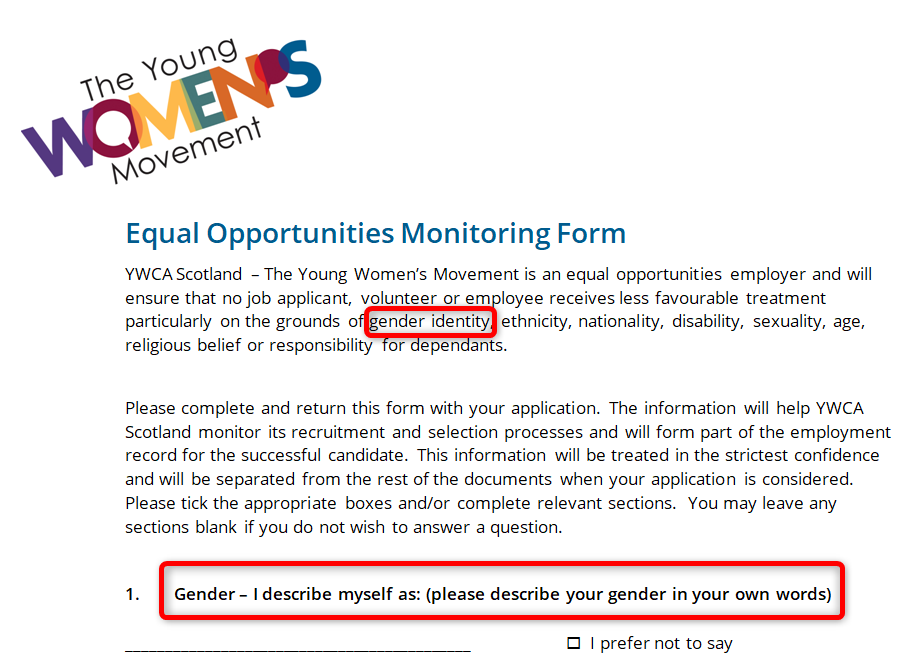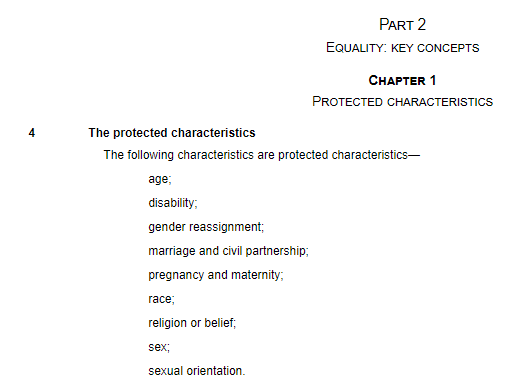
Hi @GuildfordBC @EHRC @EHRCChair @KishwerFalkner @RJHilsenrath @trussliz @GEOgovuk
The Equal Opportunities section in your job application correctly has sex in the list of protected characteristics under the Equality Act 2010.
However...
cc @georgewpotter
The Equal Opportunities section in your job application correctly has sex in the list of protected characteristics under the Equality Act 2010.
However...
cc @georgewpotter

However, you then ask, "What best describes your gender?" with options:
Male
Female
Self Identify.
Male
Female
Self Identify.
'Gender' is not a protected characteristic under the Equality Act 2010 and is not defined in the Act.
legislation.gov.uk/ukpga/2010/15/…
legislation.gov.uk/ukpga/2010/15/…

Sex is the protected characteristic and the only two possible options for sex are 'Female' and 'Male' as defined in the Act and consistent with biology - 'self identify' is not a valid option.
legislation.gov.uk/ukpga/2010/15/…
'Gender' is not a synonym for sex.
legislation.gov.uk/ukpga/2010/15/…
'Gender' is not a synonym for sex.

Asking about a personal characteristic such as 'gender' that is not a protected characteristic under the Act, may be in breach of the GDPR by processing personal - and potentially Special Category - data without a lawful basis.
If you choose not to gather data on specific protected characteristics (such as sex), you cannot have the information required to ascertain whether or not you could be discriminating on protected characteristics in recruitment. This could be vital in an employment tribunal.
If you choose to discriminate on characteristics (such as 'gender') that are not protected characteristics under the Act, you may inadvertently indirectly discriminate on protected grounds.
Given these errors and your use of incorrect terms, it's not clear how you can meet your Public Sector Equality Duty or how you have met it in the past given your data could have been corrupted by those who didn't provide their sex.
Nor is it clear how you can have had due regard to the other duties given the data you have collected.
Language and meaning of words are important and proper use & understanding of terms is vital so that the public is aware of what rights they have and what your duties are. Any confusion or inconsistency over meaning may prevent people from accessing their rights in law.
Will you undertake to correct these errors and to review all your other policies, documents, reports, etc to ensure compliance?
Please respond.
sexnotgender.info/list
Please respond.
sexnotgender.info/list
@threadreaderapp unroll
• • •
Missing some Tweet in this thread? You can try to
force a refresh




















